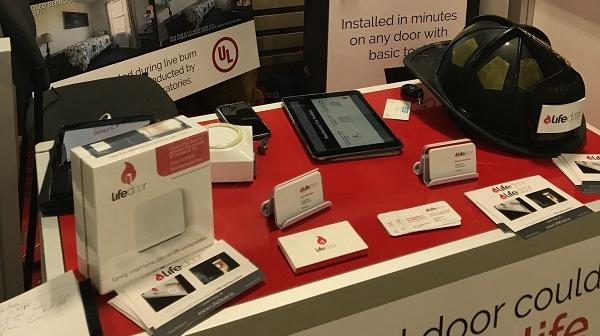LifeDoor: Tech That Can Save Your Life

The concept is pretty simple; when a fire is detected in a home, the best action you can take is to close the bedroom doors to stop it from spreading. This also helps with smoke inhalation, which is the leading cause of death in house fires. With over 365,000 fires per year, resulting in more than 13,000 injuries and 7 deaths per day there is a real need for this in the marketplace.
Research has proven that closing bedroom doors in a residence greatly limits the spreading of fire, and a closed door can save your life. According to Underwriter Laboratories (UL), the difference between an open door and a closed door can make a 900 degree difference. Further, with open home plans, house fires are spreading 600% faster than 40 years ago.
How does LifeDoor save you? When it senses an alarm – either via built-in microphone responding to an existing smoke detection system or via its Z-Wave radio to be alerted by an automation system – LifeDoor automatically closes and shuts the bedroom door, sounds a secondary alarm, illuminates the room, and sends a push notification.
The installation is stupid-simple, taking about five minutes and requires merely attaching the device to the existing hinge of virtually any bedroom door. (The green arrow in the image is pointing to the LifeDoor.) The LIfeDoor “loads” its spring the first time the door is fully opened and then is completely passive and unobtrusive until an alarm is detected. It’s built in battery is expected to last 18-24 months.
LifeDoor is hoping to come to market at a price of around $119, with multi-packs selling for a discount.














































